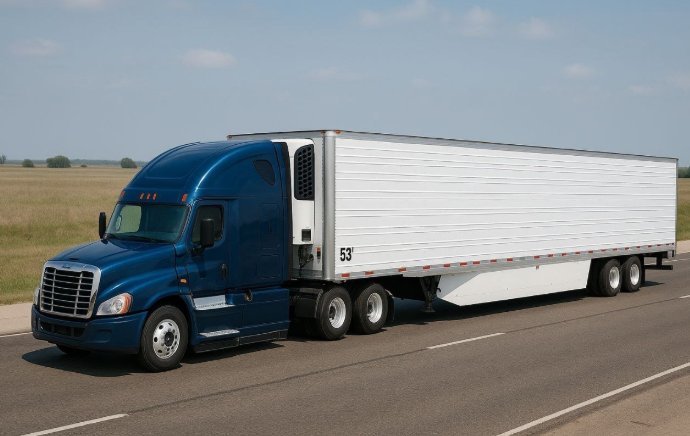Dry Van Trucking – What You Should Know Before Starting Your Business

Dry van trucking is one of the most common and reliable forms of freight transportation in the United States. A dry van is a large, enclosed trailer used to transport non-perishable goods that do not require temperature control. From retail products and electronics to packaged food and furniture, dry vans move the bulk of everyday items across the country. For entrepreneurs looking to start a trucking business, dry vans often appear as the first choice because of their versatility and high demand. However, before entering the market, there are key factors every business owner should understand.
Understanding Dry Van Trucking
Unlike refrigerated trailers (reefers) or flatbeds, dry vans are fully enclosed, protecting cargo from weather conditions and theft. They come in various sizes, with 53-foot trailers being the most common for long-haul trucking. Because they are compatible with many types of freight, dry vans offer consistent opportunities for drivers and carriers.
Advantages of Dry Van Trucking
Starting a dry van trucking business comes with several benefits:
- Versatility of freight: You can haul nearly anything that does not require refrigeration or oversized loading.
- High demand: Retail, manufacturing, and e-commerce industries rely heavily on dry van transport.
- Ease of operation: Dry vans are easier to load, unload, and secure compared to specialized trailers.
- Lower investment than reefers: Since no refrigeration unit is required, upfront and maintenance costs are more manageable.
Challenges You Need to Consider
Despite the advantages, dry van trucking has its challenges:
- High competition: Because dry vans are common, many carriers compete for similar loads, which can lower rates.
- Fuel and maintenance costs: Even without refrigeration, truck ownership involves significant operating expenses.
- Load damage risks: While enclosed, dry vans are not climate-controlled, so moisture or shifting freight can still cause damage.
- Market fluctuations: Rates can drop in slow seasons, affecting profitability.
Essential Steps Before Starting Your Business
If you want to succeed in dry van trucking, preparation is crucial. Here are the key steps to take before launching your business:
1. Get Proper Licensing and Registration
You will need a commercial driver’s license (CDL), motor carrier authority (MC number), and USDOT registration. Compliance with federal and state regulations is non-negotiable.
2. Secure Financing
Buying a truck and trailer requires significant capital. Options include bank loans, leasing programs, or owner-operator financing. Carefully calculate your expected revenue against expenses such as insurance, fuel, and maintenance.
3. Build Strong Insurance Coverage
Cargo insurance, liability insurance, and physical damage coverage protect you and your clients. Insurance costs are high but essential to avoid major losses.
4. Find Reliable Loads
You can work directly with shippers, use brokers, or access load boards. Building strong relationships ensures steady work and better rates.
5. Plan for Operations
Decide whether you will operate as an independent owner-operator or grow into a fleet. Set up dispatch systems, tracking tools, and accounting processes to keep operations smooth.
We also recommend finding a dispatcher for dry van drivers to make business easy and understandable.
Technology in Dry Van Trucking
Modern dry van businesses rely heavily on technology. GPS tracking, electronic logging devices (ELDs), and AI-based dispatch tools improve efficiency, safety, and compliance. Investing in these systems early can help you save money and build trust with clients.
Conclusion
Dry van trucking is a solid entry point into the transportation industry, offering steady demand and a wide variety of freight opportunities. At the same time, success requires careful planning, strong financial management, and the ability to navigate competition. By understanding the benefits, challenges, and necessary steps before starting, you can set your dry van business on the road to long-term growth. With preparation, persistence, and the right tools, dry van trucking can become a profitable and sustainable venture. read more



